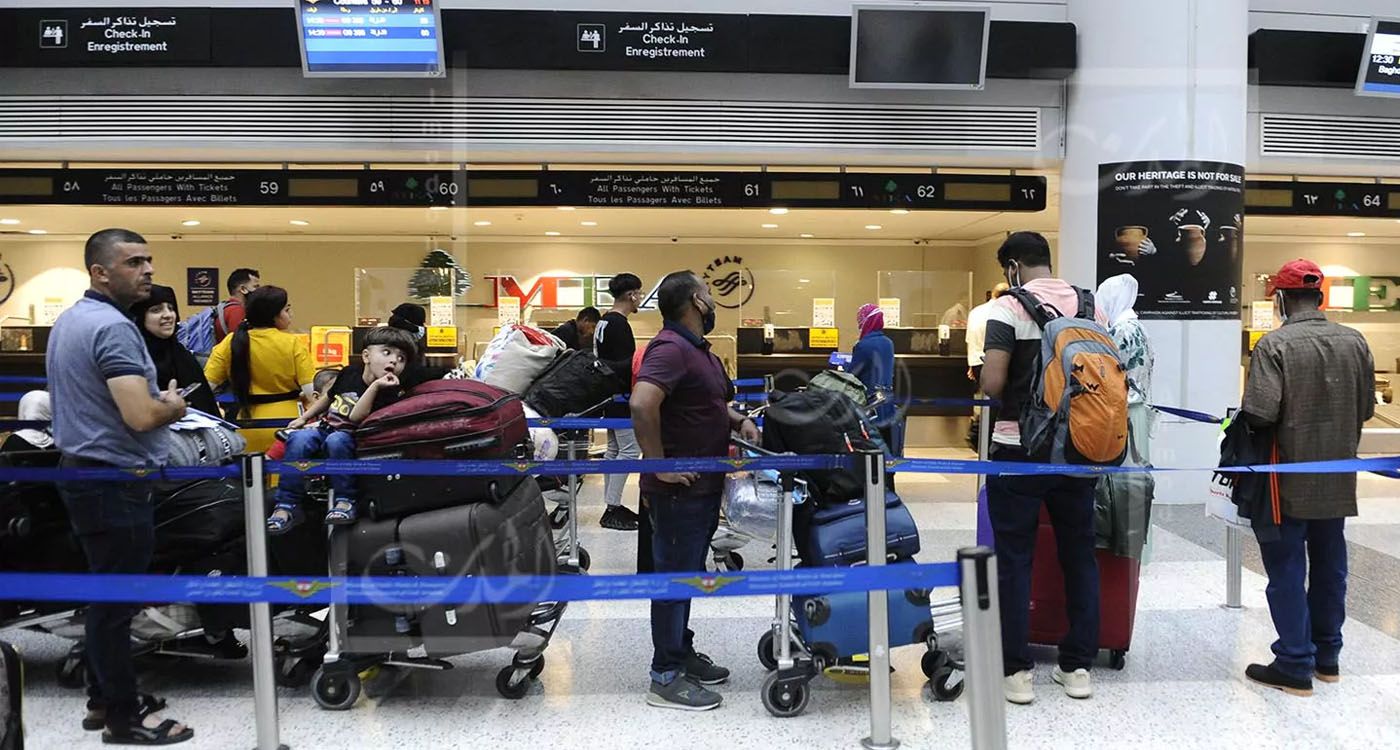
As Lebanon gears up for the 2025 summer tourist season, it looks forward to sunny days but remains wary of potential challenges. With the return of expatriates, regional tensions, Israeli ceasefire violations and an economy seeking stability, the Lebanese tourism sector finds itself navigating turbulent waters. Yet, as the saying goes, “After rain comes sunshine.” Let’s hope this year proves that true!
In 2023, Lebanon’s tourism sector contributed 30% to the GDP, generating $6 billion in revenue. Rafic Hariri International Airport in Beirut is set to handle between 85 and 100 daily flights this summer, with travel agencies reporting seat occupancy rates above 80%.
In August 2023, Beirut’s airport welcomed 915,000 passengers, marking a nearly 15% increase from the previous year. However, this surge in traffic doesn’t necessarily translate into a significant influx of international tourists. Ongoing travel restrictions imposed by various countries on their citizens continue to limit the arrival of foreign visitors.
“The hospitality industry is being hit hard,” says Pierre Achkar, the President of the Federation of Tourism Unions and the Hoteliers’ Union, in an interview with This is Beirut. He explains that most expatriates own property in Lebanon, reducing their need for hotel accommodations. “The outlook for the summer remains uncertain,” he adds.
A hotel needs an occupancy rate of 30% to 50% to cover its costs. Achkar recalls that by mid-May 2023, summer bookings had already reached 60% to 70%. This year, however, the figures are far from those levels.
Despite the challenges, there are signs of hope. Le Gray Hotel is set to reopen this summer, and the Four Seasons is expected to open by the end of the year. However, these announcements are insufficient to offset the reality of persistent restrictions. Gulf countries, particularly Saudi Arabia, maintain a travel ban on their citizens to Lebanon, while the United States, Europe and Australia continue to issue official warnings, considering the country at war.
On a more optimistic note, the United Arab Emirates has lifted its travel ban on its citizens following a visit by President Joseph Aoun to Abu Dhabi. This decision could pave the way for other Gulf states to follow suit, particularly as Lebanon remains committed to state-building, including addressing the issue of illegal weapons. However, as long as Hezbollah remains armed, Riyadh seems unwilling to lift its restrictions. In this context, Lebanese Tourism Minister Laura Khazen Lahoud traveled to the United Arab Emirates to participate in the Arabian Travel Market in Dubai, where she engaged with several Arab officials.
A brighter outlook comes from the expected increase in the number of Lebanese expatriates returning home this year. Meanwhile, regional visitors (Syrians, Jordanians, Iraqis and Egyptians) continue to fill hotel rooms, while Qataris and Kuwaitis, who have long made Lebanon their summer destination, remain barred from entry.
The golden era of Lebanese tourism, when hotels boasted occupancy rates above 80% for 100 summer days, now seems like a distant memory. In 2010, Beirut recorded an impressive 72% annual occupancy rate. Last summer, however, this figure dropped to an average of just 60% on weekends and plummeted to 20-25% on weekdays – well below the threshold needed for profitability. As Achkar succinctly puts it, “We’re far from winning… we’re just trying not to lose.”
Amid the decline in the traditional hotel sector, guesthouses and boutique hotels are experiencing growing success. With their smaller scale and personalized service, these establishments continue to attract a loyal and expanding local and regional clientele.
Ramzi Salman, the President of the Guesthouse Owners’ Syndicate, reports a promising season ahead, with strong bookings for weddings and other events. However, restaurateurs remain more cautious. Khaled Nazha, the Vice-President of the Restaurant Owners’ Syndicate, puts it simply: “The restaurant sector is ready – despite everything it has been through.” Ready, perhaps – but recent Israeli airstrikes, particularly on the Beirut southern suburbs, have made the situation even more challenging.
“We were very optimistic,” admits Nazha, “but the recent raids are hardly in line with our expectations.” What the sector is calling for is simple: calm, political and economic stability… and perhaps emotional stability as well! After all, let’s be honest – even expatriates who are no strangers to turmoil might have second thoughts. The overall atmosphere is far from reassuring, especially as explosions grow ever closer to the capital.
And as long as nationals from Gulf countries remain officially banned from entry, any hopes for a boost from that region remain out of reach.
Fortunately, to lift the mood, the summer calendar is packed with enticing events: concerts, festivals and a variety of activities – enough to add some zest, even if the main ingredient, stability, is still missing.
Despite the challenges, Lebanon’s tourism sector displays remarkable resilience. The return of expatriates, Emiratis and other regional visitors, along with government initiatives, offers promising prospects. However, political and security stability are critical to ensuring a successful summer season. As Pierre Achkar wisely puts it, “Lebanon did not choose to be at war.” With a bit of luck and a lot of determination, the sector may yet see brighter days ahead.




Comments